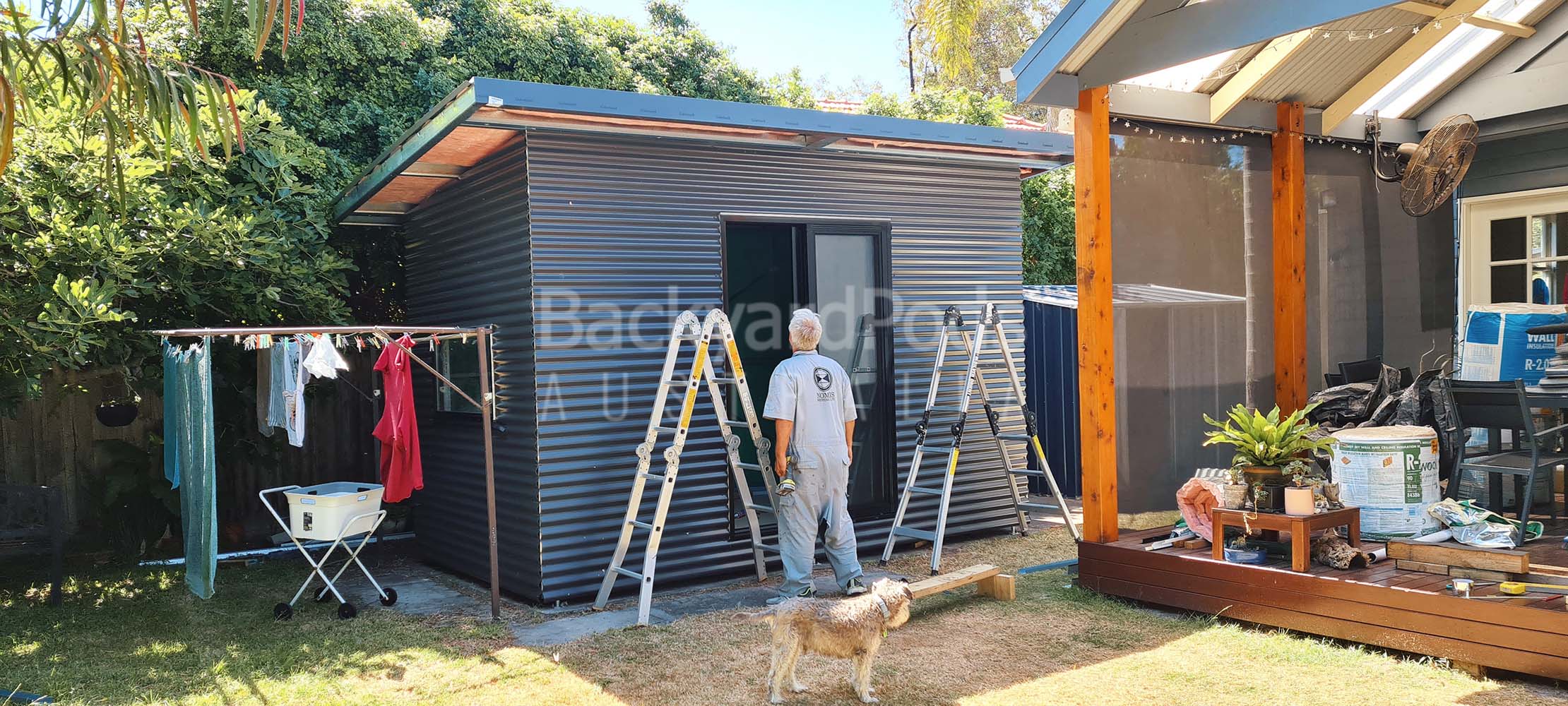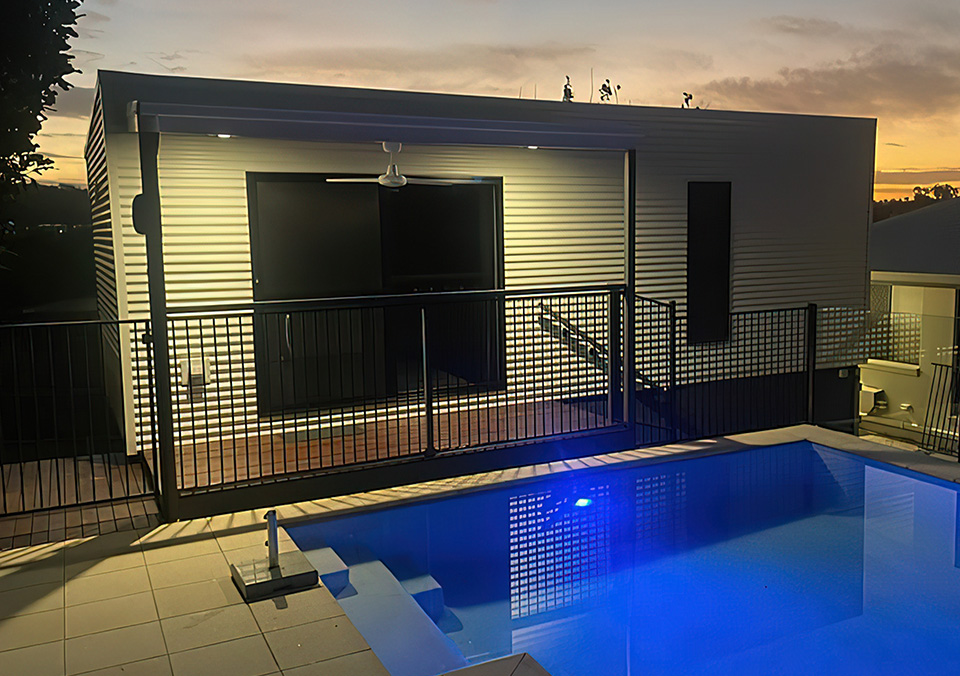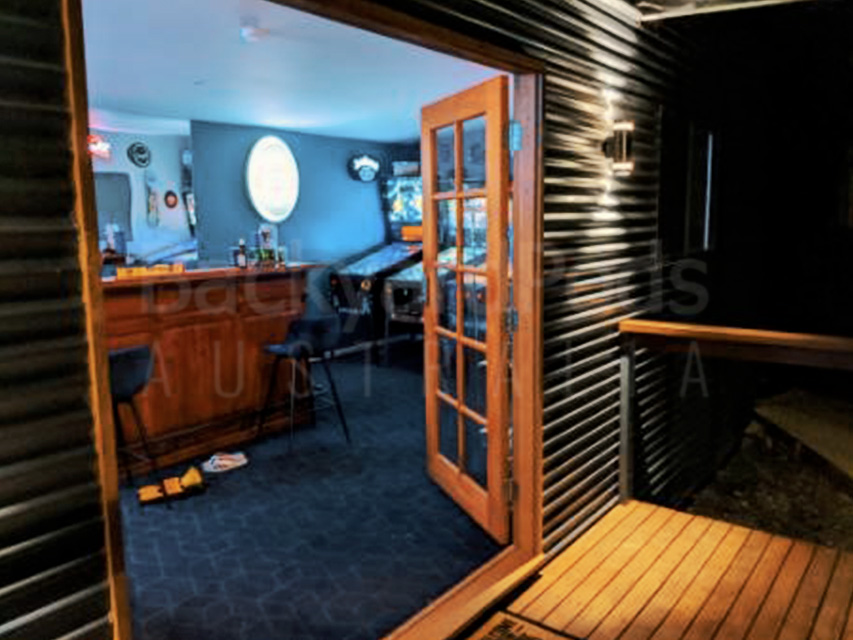About exempt development

It’s not what you might think!
Many people believe that if their proposed building is small enough to qualify for exempt development, it won’t need approval. They’re often surprised (and disappointed) to find out that it’s not quite so simple.
While small non-habitable buildings (eg: sheds) can be permissible without approval in most States, any habitable building (eg: any type of room) must be approved, no matter what size, and no matter where in Australia.
As the property owner, the decisions you make are your choice. There could be costly implications if you proceed by disregarding rules and regulations. You can do the research for yourself but if you don’t have time or aren’t certain, you can easily get professional preliminary advice.
Definition of non-habitable rooms
The non-habitable room definition may include a storage room, pantry, bathroom, laundry, toilet, hallway, walk-in wardrobe, corridor, gazebo, cabana, photographic darkroom, utility room, garage, shed, and other types of rooms that are not used often nor for significant periods. For example, one customer [right] successfully went ahead with an exempt project as a ‘storage room for art supplies’ where they spent a little time occasionally.
But unless this is the kind of limited purpose you’ve got in mind for your building project, then it’s habitable, and it’s going to need approval.
Needing approval shouldn’t put you off too much. Your approved home office (or whatever you like to call it) is a normal room that can be used even as an extra bedroom, which is a definite value-add for your property.


Going ahead with exempt development
If you’re satisfied that your project qualifies as exempt development, then you can go ahead with ordering your Backyard Pod kit fabrication and moving forward with construction.
With previous building experience and the right tools, you might be confident to undertake your Backyard Pod as a DIY building project.
Otherwise, any carpenter or similar tradesperson should be able to construct the kit from the instructions, videos, and engineering documents provided, just the way you want it. We can usually introduce you to network partners with previous experience and we can help along the way.
Exempt development in NSW
Residential properties may have up to two (2) non-habitable exempt structures per allotment. Each structure can be up to 20sqm in floor area but must be less than 3m high above the existing ground level at the lowest point. You must build at least 900mm from any boundary and 1m from any easement. The structure cannot be in front of the main building line and cannot interfere with access or fire safety. The roof water must be managed appropriately. Rural-zoned properties may have up to two (2) exempt structures per allotment up to 50sqm each in floor area.
No worries if you want to build a non-habitable structure that doesn’t quite comply with the rules for exempt development. You can easily apply for a relaxation of the rules (or one of our network partners can do it for you).

Exempt development in VIC
Residential properties may have one non-habitable (Class 10) exempt structure per allotment. Structures can be up to 10sqm in floor area but must be less than 3m high above the existing ground level at the lowest point. You must build at least 1m from any boundary or easement, 9m back from the front street alignment, and 2m back from any side street. The structure cannot interfere with access or fire safety. The roof water must be managed appropriately.
No worries if you want to build a non-habitable structure that doesn’t quite comply with the rules for exempt development. You can apply for a relaxation of the rules (or one of our network partners can do it for you).
Exempt development in QLD
Backyard Pods are unsuitable for exempt development in QLD due to the lower height restrictions compared to other states. Still, many Backyard Pods have been approved in QLD for non-habitable purposes such as backyard photographic studios where the extra ceiling height is much needed.
Our QLD network partner can easily assess your project, offer preliminary advice, and help you navigate the most efficient and economical pathway for your project approvals.






